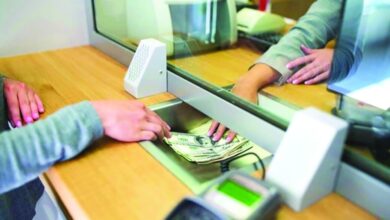Fostering collaboration, consensus, inclusiveness through diplomacy
In our portrayal of women diplomats serving in Kuwait, as part of our ongoing series on ‘Honoring Women Reshaping World Diplomacy’, we spoke this week with Ambassador of the European Union H.E. Anne Koistinen, on her take on the role of women in diplomacy and how gender equality helps address global challenges more effectively.

The Times Kuwait Report
What inspired you to pursue a career in diplomacy?
Growing up, I was always fascinated by how countries and peoples around the world interact and collaborate to address global challenges. I was also inspired by the powerful role of the European Union project in shaping peace and collaboration in a continent that saw constant wars for hundreds of years. Therefore, joining the European Union diplomatic service came as a natural step to me.
What challenges have you faced as a woman in diplomacy, and how did you overcome them?
Overall, I must say I have been lucky to find many fellow inspiring women diplomats, as well as many supportive men along my professional journey. Of course, there have been moments where I had to overcome stereotypes and biases in what has traditionally been a male-dominated field. But I must also say that I have always felt valued and supported in the European diplomatic service for the quality of my work and my skills, regardless of my gender.
Acknowledging that there is still a long way to go, the European Union has put in place ambitious policies and concrete action plans to ensure that all fields of the economy and the society are inclusive, also in terms of ensuring a fair and equal representation of women. I would also like to say that during my years in Kuwait I have come across many bright women diplomats.
How do you think gender influences diplomatic styles or approaches?
I believe we can all bring our unique and valuable skills and knowledge to our jobs, no matter what our gender or background is. Women have been traditionally more successful in fostering collaboration and consensus-building, enhancing communication, and pursuing peaceful conflict resolution, which are essential attributes in diplomacy and peace building.
Can you share a moment when you felt you made a meaningful impact through your diplomatic work?
I can say that, over the past two years, I have been proud to see the significant impact of our work with the Kuwaiti authorities and different sectors of the society. It has been very rewarding to deliver concrete joint projects with our Kuwaiti friends on areas such as women in the business sector, women and the environment or women, peace and security.
What leadership qualities do you believe are essential for success in this field?
Resilience, empathy, and adaptability are crucial. A successful diplomat must listen actively, understand diverse perspectives, and be ready to adapt strategies in a rapidly changing global environment.
What advice would you give to young women aspiring to join the foreign service?
Be perseverant and fearless in pursuing your goals. Build a strong foundation of knowledge, cultivate communication skills, and seek mentorship opportunities. And be confident about your skills and values, which can make a positive impact in your community and in society regardless of your gender.
How can diplomacy better reflect the diversity of the societies it represents?
I firmly believe that encouraging and ensuring equal representation will not only enrich diplomatic work but will also enable us to address global challenges more effectively.
How can u describe your tenure/experience in Kuwait
My experience in Kuwait has been deeply enriching, both professionally and personally. I have found Kuwait to be a place of genuine warmth and hospitality, with meaningful traditions and a dynamic society. Working here has allowed me to witness first-hand how well Kuwaitis know Europe and appreciate Europe, which paves a solid base for EU-Kuwait relations to continue going from strength to strength.












